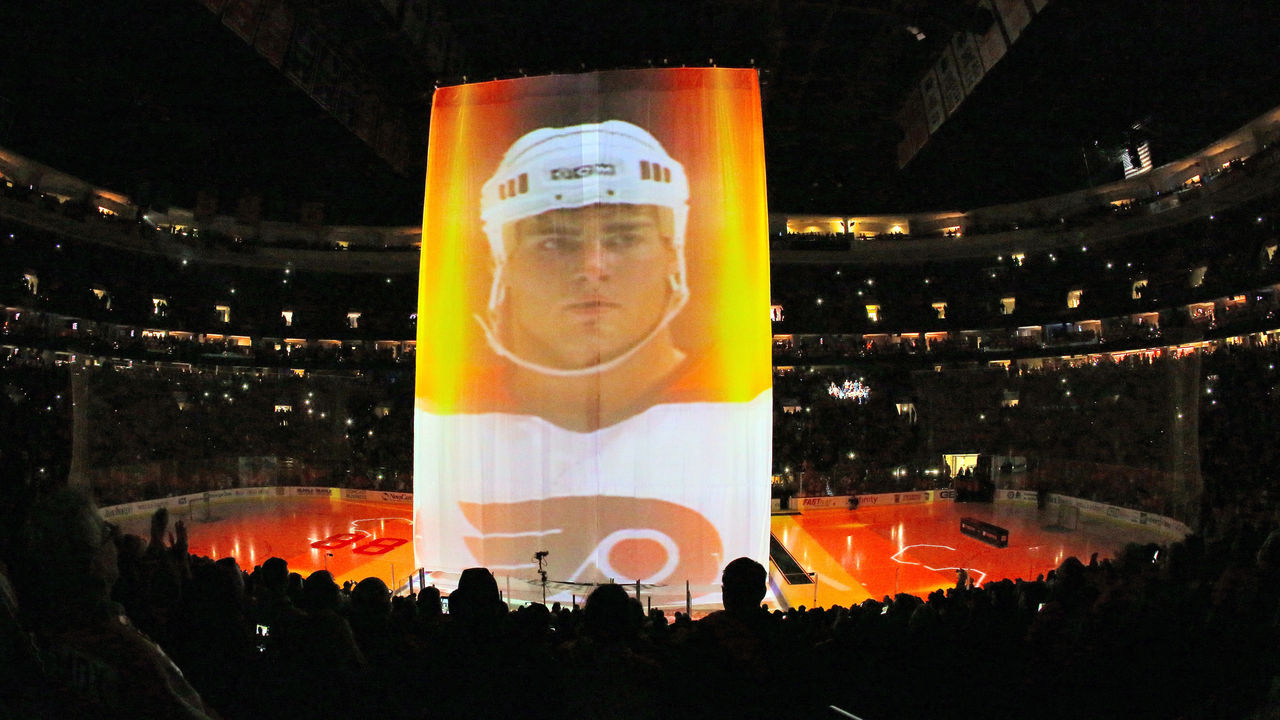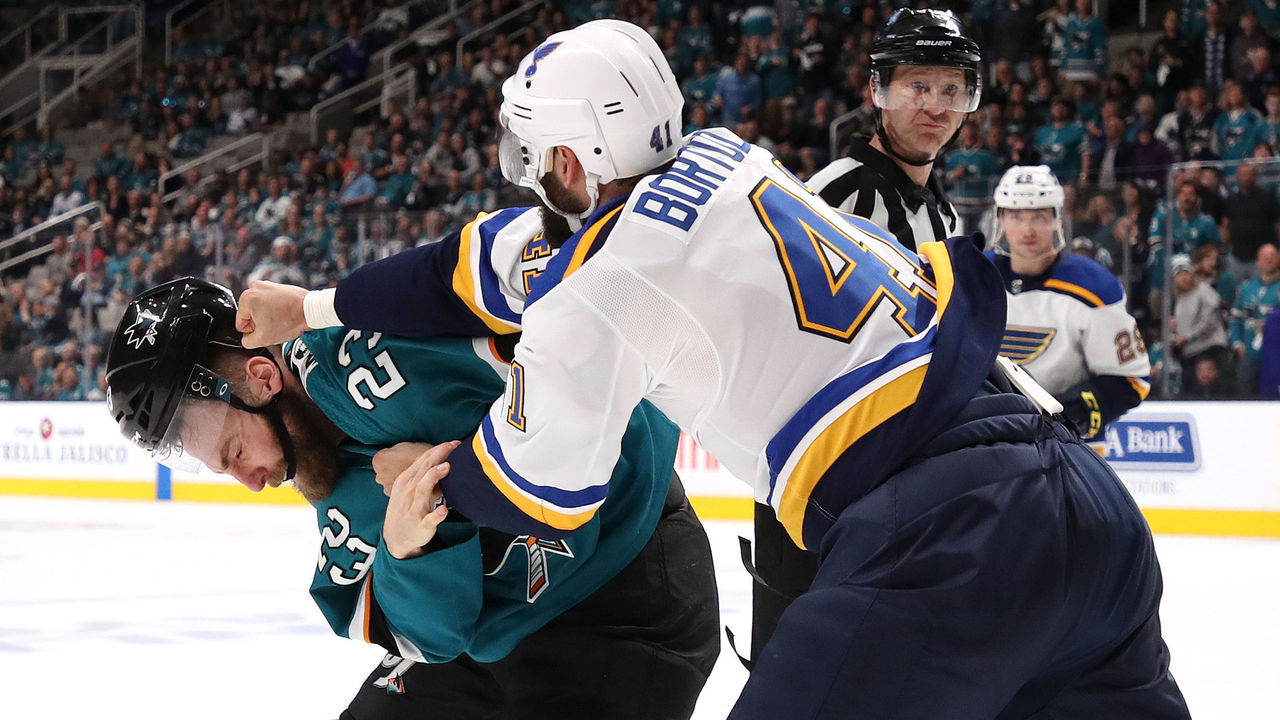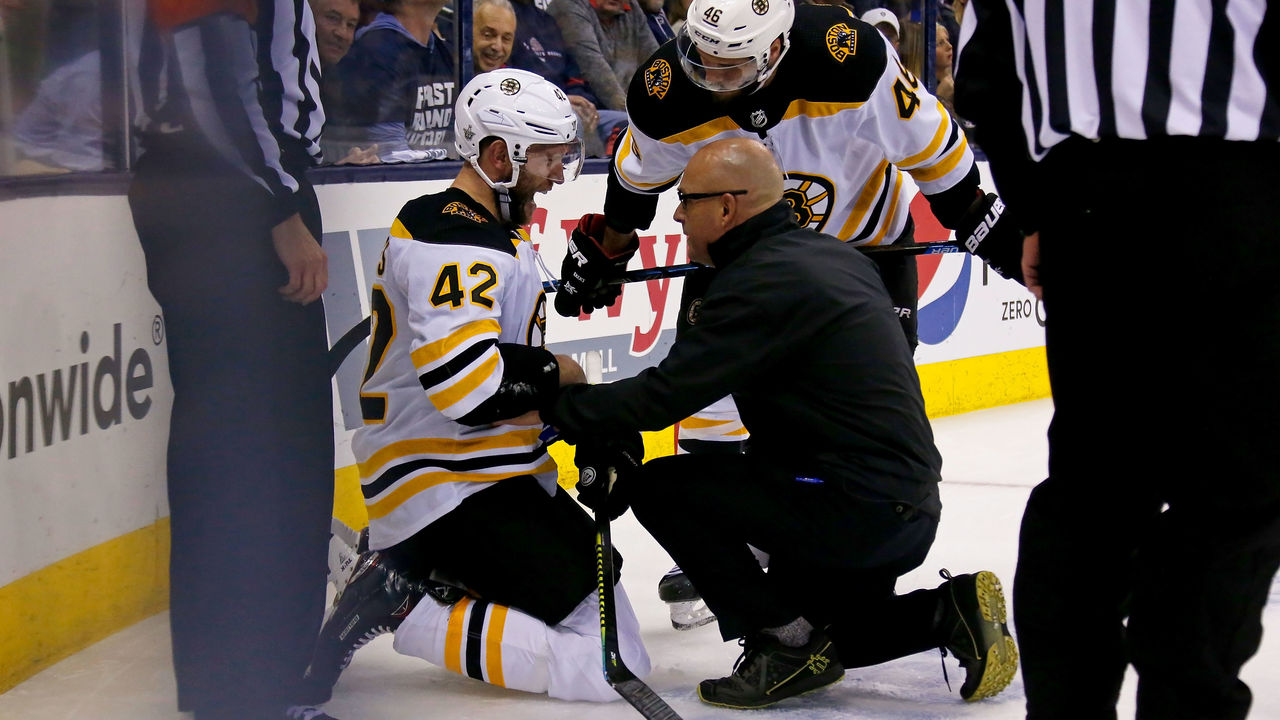Why the politician who sparred with Bettman wants the NHL to abolish fighting
For 20 years before he entered politics, Doug Eyolfson worked as a physician at an emergency room in Winnipeg, Manitoba, treating, among other patients, people who'd suffered a nasty blow to the head.
Be it the result of a fall, a car crash, or a collision in a contact sport, Eyolfson would ponder two questions about the injury. Could it have been prevented? And if not, could anything have been done to reduce its severity?
That line of inquiry was front of mind for Eyolfson when, in his present capacity as a federal Member of Parliament, he got to grill NHL commissioner Gary Bettman about the necessity of hockey players engaging in fisticuffs.
In an exchange before a government subcommittee on concussions in sports - a body that recruited Eyolfson last year because of his medical background - the doctor-turned-legislator trained his ire and his decades of ER experience on Bettman, arguing that the NHL should stop tolerating fights and move to outlaw the practice entirely.
Bettman's rebuttals would have been familiar to any fan of his league. Fewer NHL games than ever feature fights, the commissioner said, and besides, most players approve of its presence as a recourse: They believe fighting helps discourage stickwork, elbows, and other unsavory forms of aggression.
The refrain was predictable, but it didn't make the moment any less extraordinary. For a couple of hours on the afternoon of May 1, a group of politicians foraying into hockey's ongoing reckoning with head injuries was granted equal footing with the most influential man in the sport - and one of its members didn't care at all for what he heard.
"(Bettman's testimony) told me that at a very, very high level, there is someone who wields a great deal of power in sport that is refusing to accept that this is a potentially catastrophic series of injuries," Eyolfson said from Winnipeg in a recent phone interview.
"He doesn't believe the league can do anything more to improve its situation."
Since the Canadian government's Subcommittee on Sports-Related Concussions first convened in Ottawa, Ontario, last fall, Eyolfson and six of his colleagues from the national legislature have spoken with a range of high-profile witnesses who have firm opinions on the issue at hand. They include Hockey Hall of Famers Ken Dryden, who has called for a ban on all hits to the head, and Eric Lindros, who has championed concussion prevention ever since a string of head injuries derailed his career.

The subcommittee, chaired by former Olympic marathoner Peter Fonseca, is tasked with recommending ways that provincial governments, sports organizations, and the rest of the country can effectively prevent and treat concussions. It was not explicitly designed to lecture the chief executive of the world's biggest hockey league on how to protect the health of his players.
Still, by chiding Bettman about the endurance of fighting in a climate where ex-NHLers have sued the league for failing to properly warn them about the risk of head injuries - and, in some cases, have spoken out about their hellacious transitions after retirement - Eyolfson hinted at a larger desire: for himself and his fellow politicians to help shape the conversation about player safety.
"I understand hockey is a physical game and there's going to be physical contact and there's a chance of injury," Eyolfson said. "But it can be minimized. I'd like to see the NHL listen to this. I'd like Mr. Bettman to believe the science that repeated head injuries lead to CTE and to appreciate that, in fact, there are real dangers to the continued tolerance of fighting, and that this (should) be removed from the league."
Eyolfson, who is in his mid-50s, played hockey when he was a teenager and now tunes into games from time to time. His favorite leisure activities these days are long-distance running and downhill skiing. He also rides a motorcycle; that pastime, combined with his fondness for the slopes, makes him keenly aware that people can't and shouldn't be bubble-wrapped as they move through life.

None of this has persuaded him that fighting serves a legitimate purpose. Citing the experiences of youth players who testified to the subcommittee, he argues that the presence of fights in NHL games creates a "culture of violence" that trickles down to minor hockey, convincing impressionable kids that they have to be willing to trade blows - and to expose themselves to the consequent health risks - if they want to succeed in the sport.
In response to one pillar of Bettman's testimony - that the players who want fighting to be preserved believe it deters dirty play - Eyolfson contends that there's no evidence to support the claim. (The NHLPA/CBC survey Bettman appeared to reference in his answers, saying 98 percent of players want to keep fighting in the game, is from 2011.)
At the very least, Eyolfson's skepticism was well timed. During a playoff game on the night before Bettman spoke to the subcommittee, Boston Bruins forward Brad Marchand punched Columbus Blue Jackets defenseman Scott Harrington in the back of the head. The day after Bettman's appearance, the Blue Jackets' Dean Kukan elbowed Boston's David Backes in the chin.
"We still see the dirty hits that we've seen," Eyolfson said. "It does cause this continuing violence that could be removed entirely, the way it is in other leagues - like, for instance, in European hockey, where you don't see it at all - and where you don't see it in other sports."

It remains to be seen what recommendations Eyolfson and his subcommittee colleagues propose. Bettman and his deputy commissioner, Bill Daly, were their last witnesses. The subcommittee is due to report its conclusions to the Canadian legislature's health committee by early June.
Another unresolved question is whether the subcommittee will ask the NHL to take any particular actions. There is some precedent for a government panel effecting change in pro sports - MLB, for instance, strengthened its drug testing policy after a congressional investigation into steroid use helped prompt Bud Selig to commission the 2007 Mitchell Report. However, Bettman isn't bound to comply with any recommendations from a handful of Canadian politicians.
No matter what transpires, Eyolfson has staked his position in a seminal hockey debate. During Bettman's testimony, the commissioner told him that fighting has diminished to the point where it doesn't occur in 85 percent of NHL games. To the former ER doctor, any number below 100 percent is insufficient.
"People are going to undertake activities that have risk to them. I'm no stranger to that," Eyolfson said. "I understand what risk is about. But whenever I see an injury, I think: Is there a way that could have been minimized?"
Nick Faris is a features writer at theScore.
HEADLINES
- What does Brad Marchand, first-time Olympian, have up his sleeve?
- 2026 Olympic men's hockey predictions: Podium, MVP, and more
- One big question for each Olympic men's hockey medal contender
- Top Shelf: Charting paths to Olympic gold for USA, Canada
- Olympics are here for many NHL stars who waited half their careers or more for this